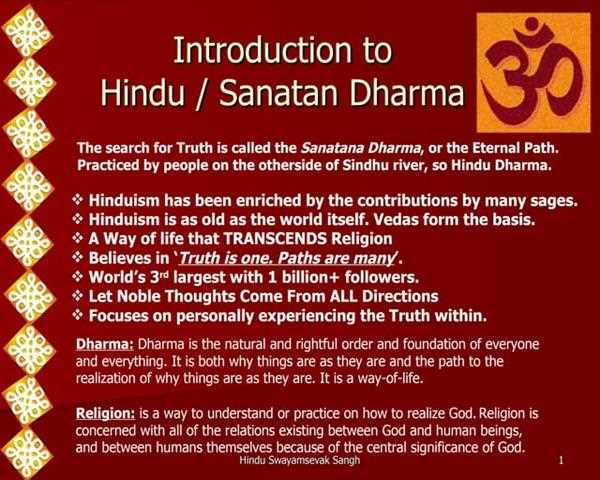Karma is a Sanskrit word that means "action" or "deed". In Sanatan Dharma, karma is the law of cause and effect. It is believed that every action has a corresponding reaction, and that our actions in this life will affect our future lives.
There are three types of karma:
- Prarabdha karma: This is the karma that is currently being experienced. It is the result of actions from previous lives.
- Sanchita karma: This is the accumulated karma from all of our past lives. It is the storehouse of all of our potential karma.
- Kriyamana karma: This is the karma that we are currently creating. It is the karma that we are responsible for.

The goal of Sanatan Dharma is to break the cycle of karma and achieve moksha, or liberation. This can be done by following the dharma, or the path of righteousness. The dharma includes following the teachings of the scriptures, living a moral life, and helping others.
Karma is a central concept in Sanatan Dharma and has a profound impact on how Hindus view the world. It teaches that our actions in this life have consequences for our future lives, and that we should strive to live a good and virtuous life in order to achieve moksha.
Here are some of the key beliefs about karma in Sanatan Dharma:
- Karma is the law of cause and effect.
- Every action has a corresponding reaction.
- Our actions in this life will affect our future lives.
- The goal of Sanatan Dharma is to break the cycle of karma and achieve moksha.
Karma is a complex concept, and there is no one right way to understand it. Each person must find their own way to understand karma and its place in their own spiritual journey.